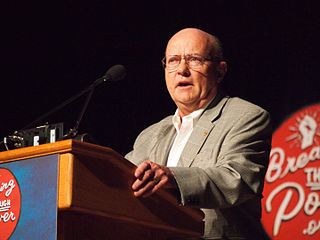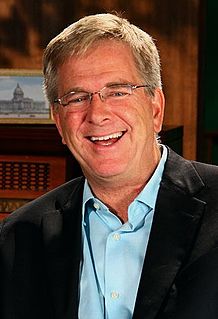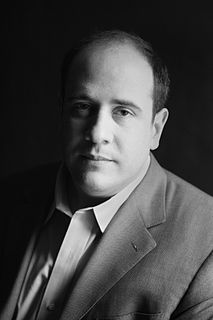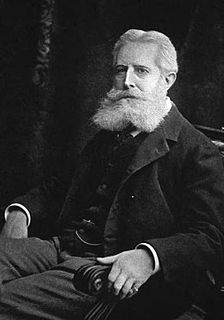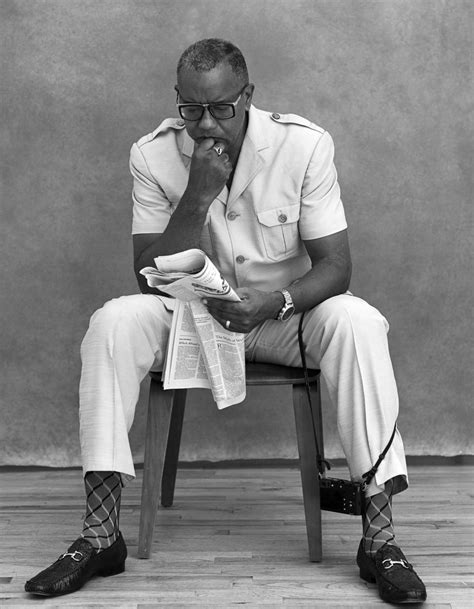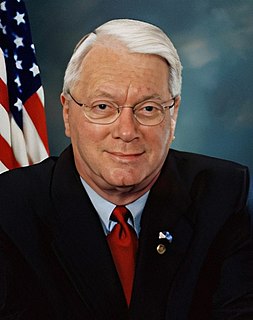Top 1200 Civil War Quotes & Sayings - Page 19
Explore popular Civil War quotes.
Last updated on December 26, 2024.
That all war is physically frightful is obvious; but if that were a moral verdict, there would be no difference between a torturer and a surgeon. There are certain intellectuals who are too bright to be content with merely praising peace but who are infuriated by anybody praising war. If no war is possible, all criminality has its chance
We have heard all of our lives how, after the Civil War was over, the South went back to straighten itself out and make a living again. It was for many years a voiceless part of the government. The balance of power moved away from it--to the north and the east. The problems of the north and the east became the big problem of the country and nobody paid much attention to the economic unbalance the South had left as its only choice.
You know George W. Bush is a war-time president, he says - proudly. Guess what. War is failure! When you are at war, you have failed! When you have gone to a war of choice and lied about it, you're a double-triple, triple-quadruple failure! Or a warlord. It's called a warlord in other countries. A war time president here. One man's ceiling I guess is another man's floor. George Bush is a warlord. He's a failure!
You do not want a war. You have known violence, you have suffered loss, but you have seen nothing of war. War is not just the business of death; it is the anti-thesis of life. Hope, tortured and flayed, reason, dismembered, grinning at its limbs in its lap. Decency, raped to death... You will be a murderer and more.
Some things are apparent. Where government moves in, community retreats, civil society disintegrates and our ability to control our own destiny atrophies. The result is: families under siege; war in the streets; unapologetic expropriation of property; the precipitous decline of the rule of law; the rapid rise of corruption; the loss of civility and the triumph of deceit. The result is a debased, debauched culture which finds moral depravity entertaining and virtue contemptible.
Snowden is not the disease. We don't have traitors or whistleblowers blooming all over because they are some sort of malady. The disease is war. We've been at war now and with no end in sight for over a dozen years, the longest in our history. War breeds tyranny. War breeds people who want to prosecute and persecute those who reveal that tyranny. So what we have is the government becoming more draconian - clearly understandable. It always does in a period of war. And as it becomes more draconian, more and more whistleblowers coming.
No power but Congress can declare war; but what is the value of this constitutional provision, if the President of his own authority may make such military movements as must bring on war? ... [T]hese remarks originate purely in a desire to maintain the powers of government as they are established by the Constitution between the different departments, and hope that, whether we have conquests or no conquests, war or no war, peace or no peace, we shall yet preserve, in its integrity and strength, the Constitution of the United States.
I think Ebola is a great example of where the world really needs to come together. The three countries where this outbreak took place have had a lot of civil war, very weak health systems. And so, it did take a while for people to understand ....that eventually what we saw was a very unique Ebola epidemic. I think it is quite impressive what's being pulled together, and I think we will be able to get this under control.
As we have sought through the centuries to define ourselves as human beings and as nations through the prisms of history and literature, no small part of that effort has drawn us to the subject of war. We might even say that the humanities began with war and from war, and have remained entwined with it ever since.
In the last couple of years before Chairman Mao's death he said that the "Cultural Revolution" had been wrong on two counts: one was "overthrowing all", and the other was waging a "full-scale civil war". These two counts alone show that the "Cultural Revolution" cannot be called correct. Chairman Mao's mistake was a political mistake, and not a small one.
I've been in politics all my life. In 1945, I committed my first act of civil disobedience during the election campaign for the first post-World War II general election, when the Labour Party, to everyone's amazement, ousted the Conservatives. I refused to obey the instructions of a policeman, and as a result, almost got a belt around the ear, because those were the days when policemen could hit children and nobody cared, they thought it was probably good for them.
There is a myth that the New Deal programs on their own pulled the US out of the Great Depression and created the conditions for the economic boom after World War II. As an economist, I can tell you, that is not true. In reality, it was mainly World War II that launched the boom - the massive war mobilization, the horrifying destruction and death caused by it, and then the reconstruction in its aftermath. he US was the only advanced capitalist country that was not bombed during the war.
From the accession of Henry the Seventh to the breaking out of the civil wars, England enjoyed much greater exemption from war, foreign and domestic, than for a long period before, and during the controversy between the houses of York and Lancaster. These years of peace were favorable to commerce and the arts. Commerce and the arts augmented general and individual knowledge; and knowledge is the only fountain, both of the love and the principles of human liberty.
Nothing will turn you into a Civil War buff like five years of reading. Some of the letters that people wrote from that time are so deep and so beautifully articulate. And you realize, especially with the stuff that's going on now in America, that it's always been chaos - people were disagreeing at least as much as they are now and 20,000 people would die in a day. It's the scale that's amazing, and also the proximity to our own time.
Let's put an end to this European civil war, the existence of which we don't want to admit, and stop constantly looking at whether we are better than our neighboring country at this or the other thing. We have to be open to new things, and that includes things that have been taboo until now: France still insists that the treaties cannot be changed. Germany doesn't want any financial transfers. We have to leave these old ways of thinking behind.
Christianity ... has produced the iniquities of the Inquisition, the egotism and celibacy of the monasteries, the fury of religious wars, the ferocity of the Hussite, of the Catholic, of the Puritan, of the Spaniard, of the Irish Orangeman and of the Irish Papist; it has divided families, alienated friends, lighted the torch of civil war, and borne the virgin and the greybeard to the burning pile, broken delicate limbs upon the wheel and wrung the souls and bodies of innocent creatures on the rack; all this it has done, and done in the name of God.
Every generation has its war. I have just been reminded of mine. It ended in 1989, 43 years after it began, the longest war Britain fought and certainly the most expensive. Its climax was total victory. Yet there was no parade, no medals, no colours hung in cathedrals. The Cold War saw no battles and cost almost no blood. Where there is no blood there is no glory and hence no history. Asked What did you do in the war, Daddy?, I could say only that I paid my taxes and left it at that.
The threats are coming to this country, which will, of course, increase the massive industry known as the anti-terrorism industry, and crush our civil liberties and civil rights, And it's devouring our priorities here in communities all over the country which are in such disrepair and are so neglected in terms of public works and public services.
Often war is waged only in order to show valor; thus an inner dignity is ascribed to war itself, and even some philosophers have praised it as an ennoblement of humanity, forgetting the pronouncement of the Greek who said, 'War is an evil in as much as it produces more wicked men than it takes away.'
I spent a part of ...1923 with...Dr. W.W. Keen...In the ..Civil War....he was a surgeon...and had seen many men die from suppuration of wounds after he had operated. ...He would hold the sutures in his teeth and sharpen his knife on the sole of his boot, after he had raised up his boot from the muddy ground. That was the accepted practice at the time.
Most of us who were opposed to the war, especially in the early '60's - the war we were opposed to was the war on South Vietnam which destroyed South Vietnam's rural society. The South was devastated. But now anyone who opposed this atrocity is regarded as having defended North Vietnam. And that's part of the effort to present the war as if it were a war between South Vietnam and North Vietnam with the United States helping the South. Of course it's fabrication. But it's "official truth" now.
Politics and the pulpit are terms that have little agreement. No sound ought to be heard in the church but the healing voice of Christian charity. The cause of civil liberty and civil government gains as little as that of religion by this confusion of duties. Those who quit their proper character to assume what does not belong to them are, for the greater part, ignorant both of the character they leave and of the character they assume.
That was exciting to be able to comment on civil rights. I mean, the civil rights movement that young people don't know about today, but Martin Luther King was considered by the establishment press in the early years of the sit-in movement as a dangerous man, and he was the equivalent at that time as Malcolm X. And he was told to stop his demonstrations; they were against the law and all of that. Now that he's sainted and sanctified we've forgotten.
I know the GOP is called the stupid party, but the idea that Republicans can have the Confederate flag hung around their neck is ridiculous! It's a Democrat flag! The flags - states that seceded during the Civil War were all Democrat states. That's their flag. The slave states were Democrat states! The racist states until the 1960s were Democrat states!
The high level of the technologies used during the Gulf War makes this conflict quite unique, but the very process of de-realization of the war started in 1945. War occured in Kuwait, but it also occured on the screens of the entire world. The site of defeat or victory was not the ground, but the screen.
It is not just the vulgar, premature bawdiness of pro-war triumphalists which I find revolting. It is that they accuse anti-war people of being uncaring about the people of Iraq, and the lack of concern that these proponents of war show for the bodies of the killed and those maimed and injured by their invasion.











